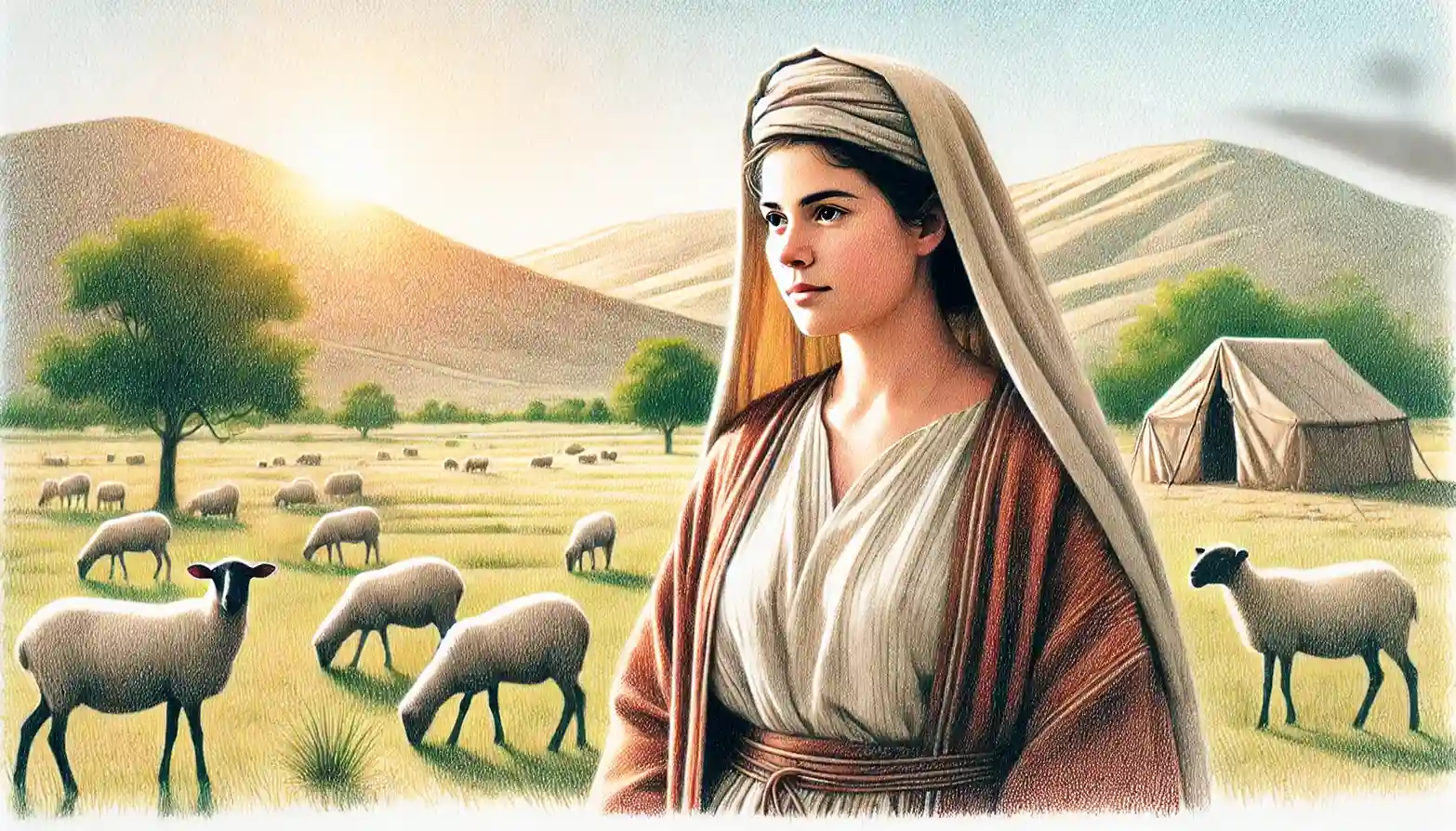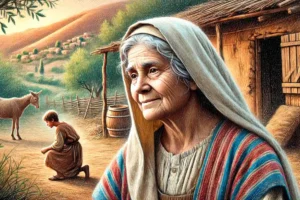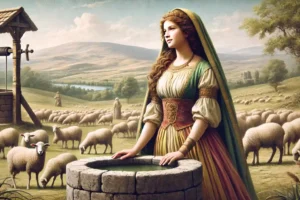
Leah: The Unloved Matriarch of Israel
Leah is a significant figure in the Bible, known as the first wife of Jacob and the sister of Rachel. Her story is primarily found in the Book of Genesis, and she is remembered for her devotion and the children she bore, who became some of the tribes of Israel.
Quick Facts:
- Family Background: Leah is the daughter of Laban and the older sister of Rachel.
- Marriage to Jacob: She became Jacob’s first wife through a deception orchestrated by her father, Laban.
- Children: Leah bore Jacob six sons—Reuben, Simeon, Levi, Judah, Issachar, and Zebulun—and a daughter, Dinah.
- Significance: Her sons became the founders of six of the twelve tribes of Israel.
- Spiritual Journey: Leah’s story reflects themes of love, faith, and divine intervention in the lives of the patriarchs.
Leah, the elder daughter of Laban and sister of Rachel, is introduced in Genesis 29-30. Her story intertwines with Jacob’s, setting the stage for a complex and dynamic family narrative.
Marriage Through Deception
Jacob falls in love with Rachel and agrees to work seven years for Laban to marry her. However, on the wedding night, Laban deceives Jacob by giving him Leah, veiled, instead of Rachel. This act reflects the cultural importance of marrying off the elder daughter first.
Leah’s Family Dynamics
Leah’s marriage to Jacob is marked by tension and rivalry due to Jacob’s love for Rachel. Despite being less favored, Leah finds favor with God, who blesses her with children. This divine intervention highlights God’s compassion for the marginalized.
Leah’s Sons and Their Significance
Leah bears six sons and one daughter:
- Reuben: His name means “See, a son,” expressing Leah’s hope for Jacob’s love.
- Simeon: Meaning “heard,” it reflects Leah’s belief that God has heard her plight.
- Levi: Meaning “attached,” signifies Leah’s desire for a closer bond with Jacob.
- Judah: Meaning “praise,” marks Leah’s shift to praising God rather than seeking Jacob’s affection.
- Issachar and Zebulun: Additional sons who further Leah’s legacy.
- Dinah: Leah’s only daughter, whose story in Genesis 34 adds complexity to Leah’s narrative.
Roles of Leah’s Sons in Israel’s History
- Reuben: Initially positioned for leadership but loses his birthright due to indiscretions.
- Levi: His descendants become the Levitical priesthood, central to Israel’s religious life.
- Judah: Emerges as a key figure, with his lineage leading to King David and ultimately Jesus.
Leah and Rachel’s Rivalry
Rachel’s initial barrenness leads to envy of Leah’s fertility, resulting in both sisters giving their maids to Jacob as surrogates. This rivalry underscores the societal pressures and personal desires for validation and legacy within their family.
Leah’s Legacy and Final Resting Place
Leah is ultimately honored as a primary matriarch. When Jacob’s family returns to Canaan, Leah is buried in the Cave of Machpelah, the family tomb, alongside Abraham, Sarah, Isaac, Rebekah, and later Jacob. This signifies her respected position in the family and lasting legacy in Israel’s history.
Theological and Moral Insights
Leah’s life exemplifies endurance, faith, and the complex interplay of human relationships and divine intervention. Her story encourages readers to find hope and dignity in difficult circumstances, recognizing that God’s plans often unfold through unexpected and challenging paths.
Tag:biblical women, Book of Genesis, Deception, Dinah, Faith, family, Issachar, Jacob, Judah, Laban, Leah, Levi, marriage, Old Testament, Rachel, Reuben, Simeon, Twelve Tribes of Israel, Zebulun



